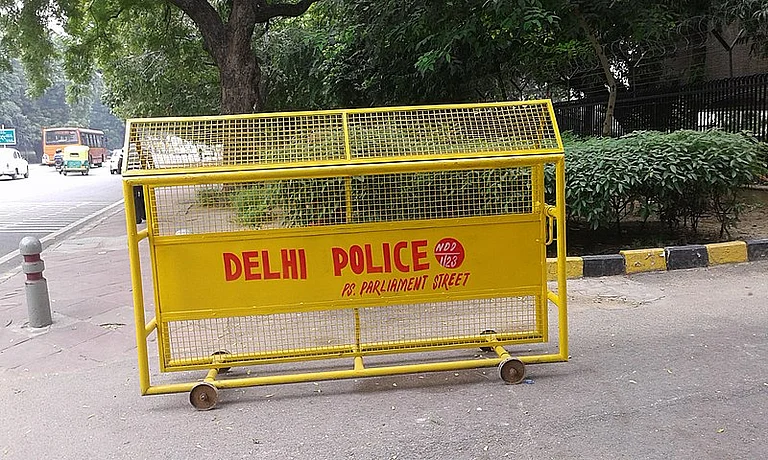Robert Oakley, former US ambassador to Pakistan, now with the National Defence University, Washington, had succeeded Arnold Raphel who perished in the August 1988 plane crash that killed Pakistan president General Zia-ul-Haq. In the elections that followed, he donned the role of kingmaker and negotiated with the army to allow Benazir Bhutto to assume power. On a recent visit to Delhi, he talked to Sunil Narula about the American policy regarding India and Pakistan.
Doesn't the Brown Amendment sanctioning arms to Pakistan violate the nuclear non-proliferation agenda of the US?
No, because the Pressler Amendment remains in effect just as the Glenn Amendment is in effect. I think you have to put it in a broader context. Is the objective to create a more dangerous situation in Pakistan, or to create a less dangerous situation?
Will the Amendment create a less dangerous situation there?
It has the possibility. During this conference, on many occasions our Indian interlocutors told us to get the Pakistanis to do this, to get the Pakistanis to do that. If all we do is punish Pakistan, why should they have any interest in doing anything that Indians tell us to ask them to do?
Does this presage a renewed US-Pakistan arms relationship?
No, if you listen to the testimony by senior US government officials, it does not. It clears the way for (solving) a problem, which is that Pakistan paid for this equipment ($368 million for an arms package of P-3s, Harpoon and Sidewinder missiles, howitzers and Nite kits). The US had neither released the equipment nor returned the money. So there was a question of fairness and of whether the US could put itself in a position where it could again talk to Pakistan. They are two good reasons to grant a one-time waiver. In the summer of 1994, Deputy Secretary of State, Strobe Talbott, had talked about a package that included the F-16s. India ought to be happy that the planes are not being given.
But that waiver was linked toIslamabad allowing a verifiable cap of its nuclear programme, which it didn't.
I understand that. But at that stage the package included the F-16s, the only truly significant military part of the package.
Is the US backing Pakistan in installing the Taliban in Kabul?
The US is certainly not supporting theTaliban. The way in which Pakistan is sym-pathising with or supporting the Taliban, I really don't know. But my warning to them would be: look at the lessons of the earlier period in Afghanistan or the Tamil Tigers. Don't start something because you don't know where it is going to end up. But I can tell you one thing, the Pakistani government does not control theTaliban.
There is a groundswell of opinion in India about going nuclear.
This is a decision for India to make. But the consequences have to be weighed very care-fully. If one wishes to be an overt nuclear power, it may be that you would try a very significant expansion and escalation of expenditure. As long as there is an acceptance of a certain degree of responsibility in terms of the world community, India has to weigh all this very, very carefully. Also, not just the US but countries like Japan and Germany have strong policies about not providing economic assistance to countries in this situation. So India has a number of tough choices ahead. If it takes a decision, it will entail some very significant changes which have to be taken into account.
Indians feel US policy is tilting towards Pakistan.
I think there is a total misreading of the situation. The fact that we have removed a significant irritant in US-Pakistani relations in terms of the small amount of old arms should not be seen as a tilt towardsPakistan. If you go to Pakistan you are told that it is still being singled out for punishment unfairly by the US. They don't believe there is a tilt. Furthermore, they will tell you 'we haven't got anything yet, the Pressler Amendment isn't even law, much less things have been delivered, these are just hollow American policies'.
India accuses Pakistan of supporting terrorism in Kashmir.
I think that there is no doubt that support is coming across the border for the Kashmiri insurgents, I don't have thedetails. In the past there was more official support than there is now, but there is support coming from across in one form or the other and it certainly complicates the problem in Kashmir. One hopes that Pakistan and India come to some sort of a resolution of this problem.
Who, Nawaz Sharif or Benazir Bhutto, would have a more practical approach towards India?
It reminds me of 1970s Turkey when Demirel and Echvit were the principal political leaders. Their feud was so intense that they neglected the problems of the country and each one outside the government would attack the one inside if he tried to improve ties with Greece. At the moment the political feud (in Pakistan) overcomes the responsibility of government no matter which one is in power. They change positions just as they change offices.

























